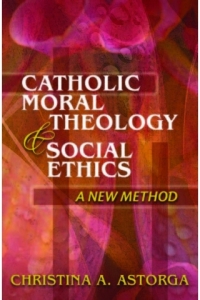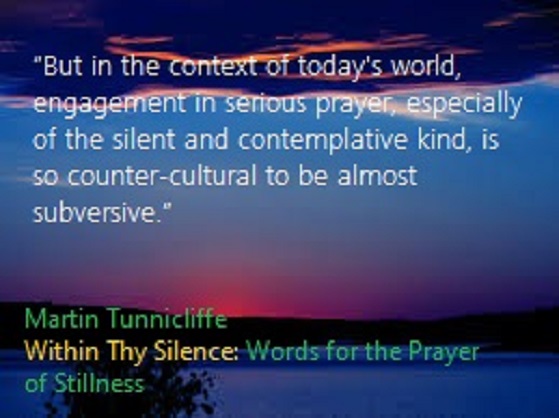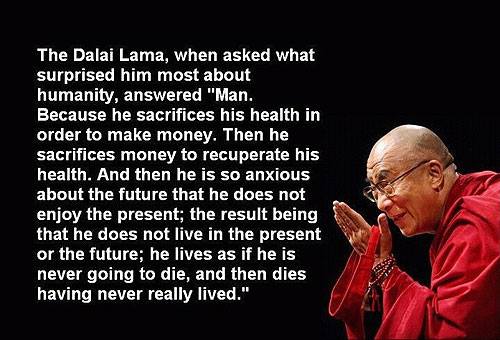from mokantx:
“Like most here, I think this whole Canonization process has gone off the rails.
I see little I can truly emulate in any pope, bishop, king or queen, for their lives are SO different from mine as to have very little in common. I have no power. I have no “status.” I have no influence, beyond my family and circle of friends and work-related contacts.
What kinship, for example, would I feel with John XXIII or JPII when it comes to trying to raise a family during a severe economic downturn? Where is the shared anguish over the things my daughters faced during their years at school? How much are my efforts to take care of my mother, who is approaching 90 and slowly “losing it,” while still maintaining my job, marriage, and other obligations, can I see mirrored in the lives of these Saints?
If the message is that i’m supposed to “find” something in holy-card images and lives spent in spheres I could only imagine, it’s not working. I’d think that the saint-making machine we call the papacy has little to offer, save perhaps for those who are bishops and aspiring for a promotion.
But a person I CAN connect to, is my departed father. Here’s a man who struggled his entire life, who always tried to do the right thing, and who had neither a mean nor prideful bone in his body. He did without so his kids might become educated. He helped the poor whenever he could, but ALWAYS did so in quiet, “off the radar” kinds of ways. This is a man who, to the best of my memory, never owned a brand new car, had his hair “styled” beyond what they did at his local barber shop, owned seasons tickets to a sports team, etc. His circle of friends were his WWII buddies. His biggest vice was a perennial bag of candy on top of the refrigerator. But I saw this man struggle. I saw him take pleasure in his children, protect his wife, and do all he could to live a good life in a society that is not always kind to those that straddle the line between the working poor, and the lower middle class.
A person like this is someone who can speak to me, for in his struggles, I see mine, and in his virtues, I see what I strive to become. Isn’t THAT what Canonization was SUPPOSED to be about?”
++++++++++++++++++++++++++++++++++++++++++++++++++++++++++
“I was taught that from time to time, the church raises up people and Canonizes them, essentially to lift up someone we can look up to, emulate, pray to for intercession, and in general, to remind us that we are all saints in the making, if we live our lives well. That “lifting up” is meant to energize, to recognize that “one of us made it,” in so many words. It’s supposed to be a good thing, sort of a rallying cry.
Problem is that when we see such a high percentage of people whose lives are SO unlike our own, SO unreachable to us, then what really IS the purpose here? I cannot help but think that the process has become so twisted, that it’s centered primarily on “popes and politics.” I used my dad earlier, NOT because I think he should be Canonized, but because I think we ALL know really good, holy, everyday people who did their best to do it all right, including people like those mentioned by AnonAJ in that post. who work in health care, or other ways that help support the dignity of each of us. Yet, I cannot think of a SINGLE such person who has been Canonized for that reason. So exactly who or what is being “uplifted here?” Is my life of so little value, so little meaning to the powers that be in the church that guys like us, and whatever we do, simply don’t matter? Think about it: the odds of my Canonization are at BEST, something like a Billion to one. But if I’m a modern day pope, at least over the last 62 years, the odds rise to something like 80-90% (or higher).
Honestly, it sorta seems like I’m being told that I cannot be worthy, because I cannot be a Pope. For a woman, it’s doubly bad, because it seems about the only way to be Canonized is to remain a Virgin, die a Martyr, or do some so extraordinary that the bishops almost HAVE to do something to acknowledge her existence, as the rest of the world “gets it.”
So what do our daily lives mean to the church? Right now, all signs suggest that to those at the top, our lives mean very little. The lives of clergy mean more (enough to place them above children in the order of who should be protected), the lives of bishops mean a LOT more, and the lives of popes apparently mean up to a billion times more…”
+++++++++++++++++++++++++++++++++++++++++++++++++++++++++++
And this one:
“Coogan observes: “By the second half of the twentieth century, even the popes’ spiritual authority was being eroded, because of flawed leadership. Pius XII’s silence about the Holocaust was moral cowardice, if not latent anti-Semitism. Paul VI’s insistence on banning artificial contraception in his encyclical Humanae Vitae, against the opinion of a majority of his advisors, effectively ended papal authority for many Catholics. John Paul II’s clericalism led to years of denial and coddling of predatory priest pedophiles and their episcopal superiors, which further diminished the Church’s authority as well as its coffers. “
Coogan then adds: “Significantly, these last two issues concern what the current pope has called an obsessive preoccupation with sex and reproduction; it is of more than tangential interest that of the thousands of men and women put on the path to sainthood by John Paul II and Benedict XVI, only a tiny percentage were married. Most openly sexually active persons, it seems, can’t really be saintly “.
Coogan calls “spades” spades as he further observes: “The haste to canonize the last five deceased popes is an effort to shore up the diminished spiritual authority of the papacy. If every pope is a saint, who could dare disagree with them? Surely they are being elevated to sainthood not mainly because of their personal holiness but because they were popes, even though as popes most of them were deeply flawed. Is flawed leadership no bar to sainthood?”
In a perceptive, but biting, final observation, Coogan concludes: “The Vatican is locked in a time warp of absolute monarchical authority, and popes canonizing their predecessors is an attempt to preserve and enhance it. The joint canonization of John XXIII and John Paul II—the first a darling of liberal Catholics, the second a favorite of traditional Catholics—is calculated to appeal to different constituencies. Even sainthood is political, and it is disingenuous to pretend that it is not.”
It is interesting how unique this “pope saint making” really is historically. Coogan points out: “From the beginning of the fourteenth century to the mid-twentieth, only two popes were canonized and another three were declared “Blessed.” Not so any more: since the papacy of John Paul II a flurry of canonizations has been underway, not just for ordinary individuals deemed holy, but also for modern popes.”
Coogan then adds: “Remarkably, all of the popes since the mid-twentieth century, except of course for those still alive, are on the path to canonization: Pius XII (1939–1958, declared Servant of God in 1990 and Venerable in 2009), John XXIII (1958–1963, declared Servant of God in 1965, Venerable in 1999, and Blessed in 2000), Paul VI (1963–1978, declared Servant of God in 1993 and Venerable in 2012), John Paul I (1978, declared Servant of God in 2003), and John Paul II (1978–2005, declared Servant of God in 2005, Venerable in 2009, and Blessed in 2011). Why this sudden, almost automatic rush to sainthood for recent popes?”
Why do you think?
Such informed candor from a scriptural scholar is unusual, but he is now an emeritus and still lectures at a secular school, Harvard. So he is beyond being “nailed” for telling the unpleasant truth about the Vatican so seldom heard, in my experience, from faculty members at Catholic institutions—too bad for Catholics, especially students.”
++++++++++++++++++++++++++++++++++++++++++++++++++++++++++++++++++++++++++=
Here’s the link to Scripture scholar Michael Coogan’s article on canonization at Yale Press blog…
 This is something to look forward to this Monday. My former professor in theology, Dr. Christina Astorga is coming to De La Salle – Manila to launch her latest book Catholic Moral Theology and Social Ethics. After holding professorial stints in different universities in the United States, she now serves as the Chair of the Theology Department of the University of Portland. The Vatican-censured Jesuit theologian Roger Haight describes the book as “A summa of post-Vatican II Catholic moral theology and social ethics, this magisterial work…offers a creative synthesis of Catholic moral thinking today.” Lisa Sowle Cahill, J. Donald Monan Professor of Moral Theology, Boston College wrote: “Strikingly original work…incisive, spiritually attuned, globally sensitive.” The book is published by Orbis Books, New York.
This is something to look forward to this Monday. My former professor in theology, Dr. Christina Astorga is coming to De La Salle – Manila to launch her latest book Catholic Moral Theology and Social Ethics. After holding professorial stints in different universities in the United States, she now serves as the Chair of the Theology Department of the University of Portland. The Vatican-censured Jesuit theologian Roger Haight describes the book as “A summa of post-Vatican II Catholic moral theology and social ethics, this magisterial work…offers a creative synthesis of Catholic moral thinking today.” Lisa Sowle Cahill, J. Donald Monan Professor of Moral Theology, Boston College wrote: “Strikingly original work…incisive, spiritually attuned, globally sensitive.” The book is published by Orbis Books, New York.


